RECIPE: Hiroshimayaki
You may be familiar with okonomiyaki, but have you heard of hiroshimayaki?
Okonomiyaki is the Osaka-style preparation of “Japanese savory pancake,” while hiroshimayaki is the Hiroshima-style preparation. Both use similar ingredients, but there are a few key differences between the two.
Let’s begin with a description of okonomiyaki, the more commonly known version of this dish. To make okonomiyaki, filling ingredients such as cabbage, seafood, and thinly-sliced pork are combined into a thick batter made with Japanese yam, then poured directly onto a teppan (iron plate). Most okonomiyaki restaurants have an option for patrons to cook their own food at the table. After cooking, okonomiyaki resembles a pancake both in looks and texture.
In contrast, hiroshimayaki has a more complicated cooking process. Unlike okonomiyaki, filling ingredients are not mixed directly into the batter. Rather, each component is cooked separately, then layered. Additionally, hiroshimayaki includes the addition of yakisoba and fried egg, which are stacked on top of a thin layer of dough. Flipping this tower of ingredients can be unwieldy, so this dish is often prepared by professional chefs rather than by customers. However, with the help of two spatulas and a little patience, it’s more than possible to make hiroshimayaki at home.
Both okonomiyaki and hiroshimayaki are finished off with a signature combination of sweet and smoky okonomiyaki sauce, Japanese mayonnaise, aonori (seaweed powder), and bonito flakes.
In summary, okonomiyaki has a fluffier texture and is more pancake-like, while hiroshimayaki features noodles prominently. Which is better? Try making this recipe to decide for yourself!
Servings: 2
Ingredients
- 200g ramen noodles (we recommend using Natural Ramen Noodles)
- 120g Okonomiyaki Mix
- 180g water
- 2½ g bonito flakes
- 250g cabbage (shredded)
- 100g beans sprouts
- ½ leek (finely chopped)
- 130g pork belly slices
- Salt and black pepper to taste
- 30g tenkasu/agedama (fried batter bits) (if available)
- 2 large eggs
- ⅔ cup vegetable oil
Toppings
- Okonomiyaki sauce (store bought or make your own by combining 4 tbsp ketchup + 3½ tbsp worcestershire sauce + 2 tbsp oyster sauce + 1½ tbsp sugar)
- Mayonnaise (Japanese style if available although regular mayonnaise also works)
- 2 tbsp aonori (dried green seaweed sprinkles)
Instructions
Note: We’ll be making one Hiroshimayaki at a time so please use half the ingredients where stated.
- Cook the ramen noodles as per the directions on the package. Drain and place in a large bowl. Add 1 tbsp of vegetable oil, mix and let cool (oil prevents the noodles from sticking).
- In a bowl, sift all the flour and slowly add all the water. Mix until there are no lumps.
- Preheat a griddle/large pan on high heat and add 2 tbsp of vegetable oil. Pour in half the batter from step 2 and spread into a thin round surface.
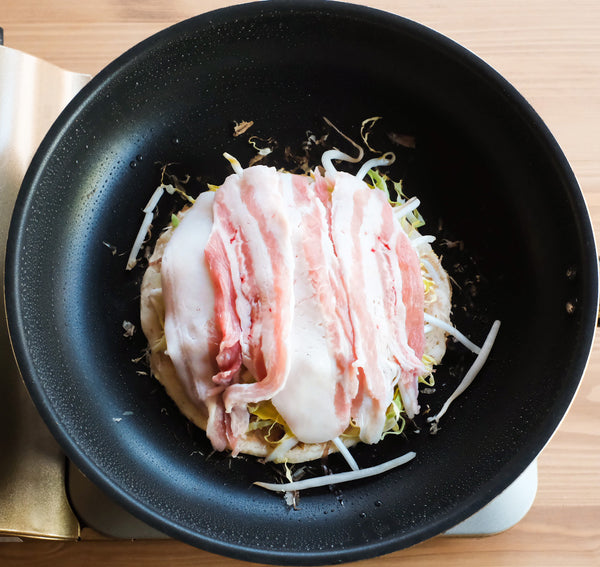
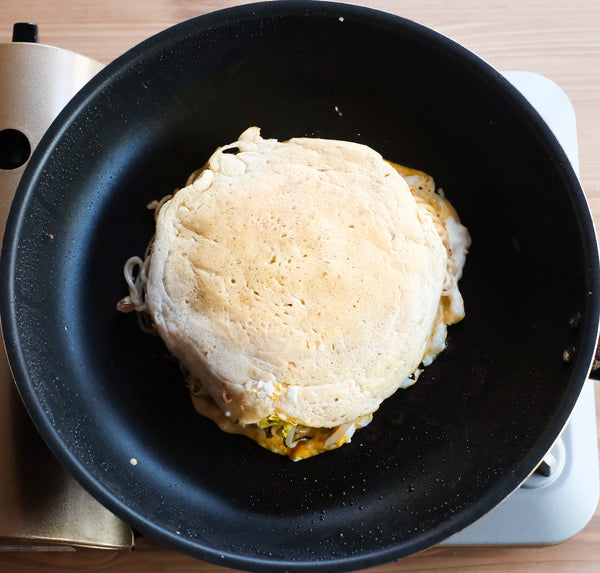
8. Plate and top with okonomiyaki sauce, mayonnaise and aonori.
9. Repeat steps 3-8 to make the second Hiroshimayaki.
Recipe intro provided by Britney Budiman

Britney Budiman (@booritney) is a writer, minimalist, aspiring effective altruist, and runner-in-progress with a penchant for saying “yes.” Previously, she has worked in Cambodia at a traditional arts NGO, in Brazil as a social sciences researcher, and in San Francisco at a housing start-up. She currently lives in the countryside of Kagoshima, Japan, where she teaches English. Her favorite thing in the world is good conversation.

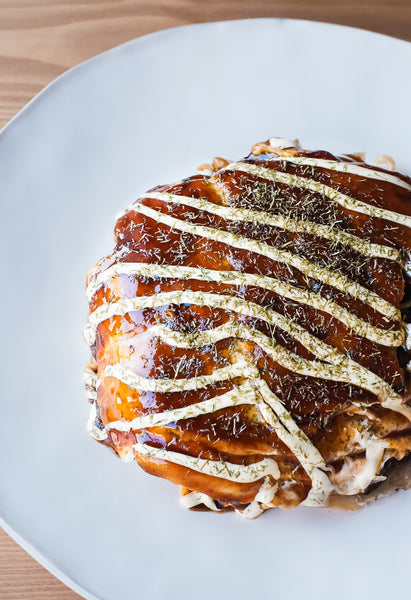
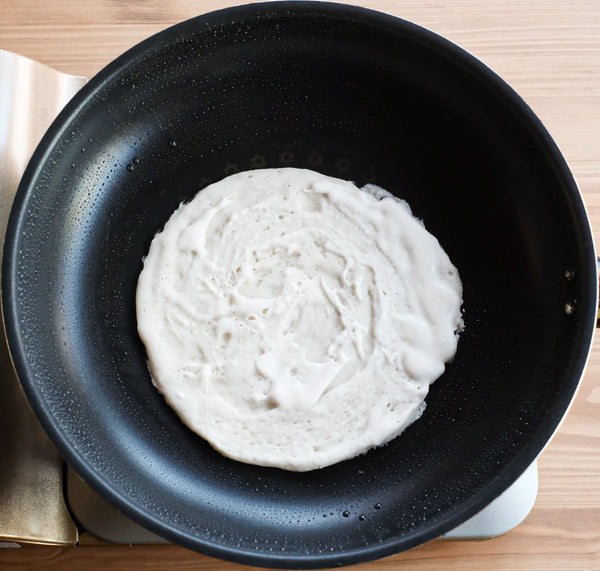
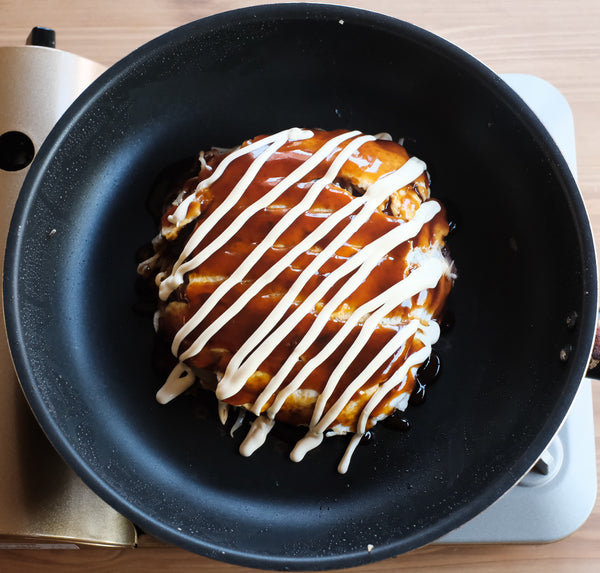




2 comments
We’re so glad you had fun making these savory Japanese pancakes! And great tip on using wider spatulas to turn them over – they can certainly be heavy and filling!
We had tried making Okonomiyaki a little while ago and they were a great hit in our place. The Hiroshima version took these pancakes to another level! I was so worried I wouldn’t be able to turn all those layers together but once I found a couple of wider spatulas it worked really well. Absolutely delicious! We shared two between three of us and were stuffed to the brim.